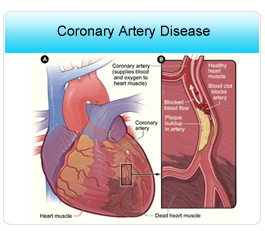 |
Heart Disease, Coronary Artery Disease, Cholesterol, BP, Diet |
|
|
|
|
|
|
|
|
|
 |
What are the five thumb rules for a layman to take care of his heart? |
|
|
|
|
|
|
|
|
|
 |
1. Diet - Less of carbohydrate, more of protein, less oil |
|
|
|
|
2. Exercise - Half an hour's brisk walk at least five days a week |
|
|
|
|
3. Avoid elevators and sitting for a longtime |
|
|
|
|
4. Stop smoking if you are a smoker. |
|
|
|
|
5. Control weight |
|
|
|
|
6. Control blood pressure and sugar |
|
|
|
|
|
|
|
|
|
|
 |
It's still a grave shock to hear that some apparently healthy person gets a cardiac arrest. How do we understand it in perspective? |
|
|
|
 |
|
This is called silent attack; that is why we recommend everyone past the age of 30 to undergo routine health checkups. |
|
|
|
|
|
|
|
|
|
|
|
|
|
|
Are heart diseases hereditary? |
|
|
|
 |
|
|
|
Yes. |
|
|
|
 |
|
|
|
|
|
|
|
|
|
|
|
|
|
|
|
|
 |
Is walking better than jogging or is more intensive exercise required to keep a healthy heart? |
|
|
|
|
|
|
|
|
|
|
 |
Walking is better than jogging since jogging leads to early fatigue and injury to joints. |
|
|
|
|
|
|
|
|
|
|
 |
Can people with low blood pressure suffer heart diseases? |
|
|
|
|
|
|
|
|
|
|
 |
Extremely rare |
|
|
|
|
|
|
|
|
|
|
|
Does cholesterol accumulates right from an early age or do you have to worry about it only after you are above 30 years of age? |
|
|
|
 |
|
|
|
|
|
|
|
|
|
|
|
|
|
|
 |
Cholesterol accumulates from childhood. |
|
|
|
|
|
|
|
|
|
|
|
|
|
|
 |
How do irregular eating habits affect the heart? |
|
|
|
 |
You tend to eat junk food when the habits are irregular and your body's enzyme release for digestion gets confused. |
|
|
|
|
|
|
|
|
|
|
 |
Can yoga prevent heart ailments? |
|
|
|
|
|
|
|
|
|
|
 |
Yoga helps. |
|
|
|
|
|
|
|
|
|
|
 |
What is the routine checkup one should go through? Is there any specific test? |
|
|
|
|
|
|
|
|
|
|
 |
Routine blood test to ensure sugar, cholesterol is ok. Check BP, Treadmill test after an echo. |
|
|
|
|
|
|
|
|
|
|
|
|
|
|
 |
What are the first aid steps to be taken on a heart attack? |
|
|
|
|
|
|
|
|
|
|
 |
|
|
|
|
|
|
Help the person into a sleeping position, put an aspirin tablet under the tongue with a sorbitrate tablet if available, and rush the person to a coronary care unit since the maximum casualty takes place within the first hour. |
|
|
|
|
|
|
|
|
|
|
|
|
|
|
 |
Is it possible for a person to have BP outside the normal range of 120/80 and yet be perfectly healthy? |
|
|
|
|
|
|
|
|
|
|
 |
Yes |
|
|
|
|
|
|
|
|
|
|
 |
Marriages within close relatives can lead to heart problems for the child. Is it true? |
|
|
|
|
|
|
|
|
|
|
 |
Yes, co-sanguinity leads to congenital abnormalities. |
|
|
|
|
|
|
|
|
|
|
 |
Is there a relation between heart problems and blood sugar? |
|
|
|
|
|
|
|
|
|
|
 |
|
|
|
|
|
|
Yes. A strong relationship since diabetics is more vulnerable to heart attacks than non-diabetics. |
|
|
|
|
|
|
|
|
|
|
|
|
|
|
|
|
 |
What are the things one needs to take care of after a heart operation? |
|
|
|
|
|
|
|
|
|
|
 |
Diet, exercise, medicines on time. Control cholesterol, BP, weight. |
|
|
|
|
|
|
|
|
|



